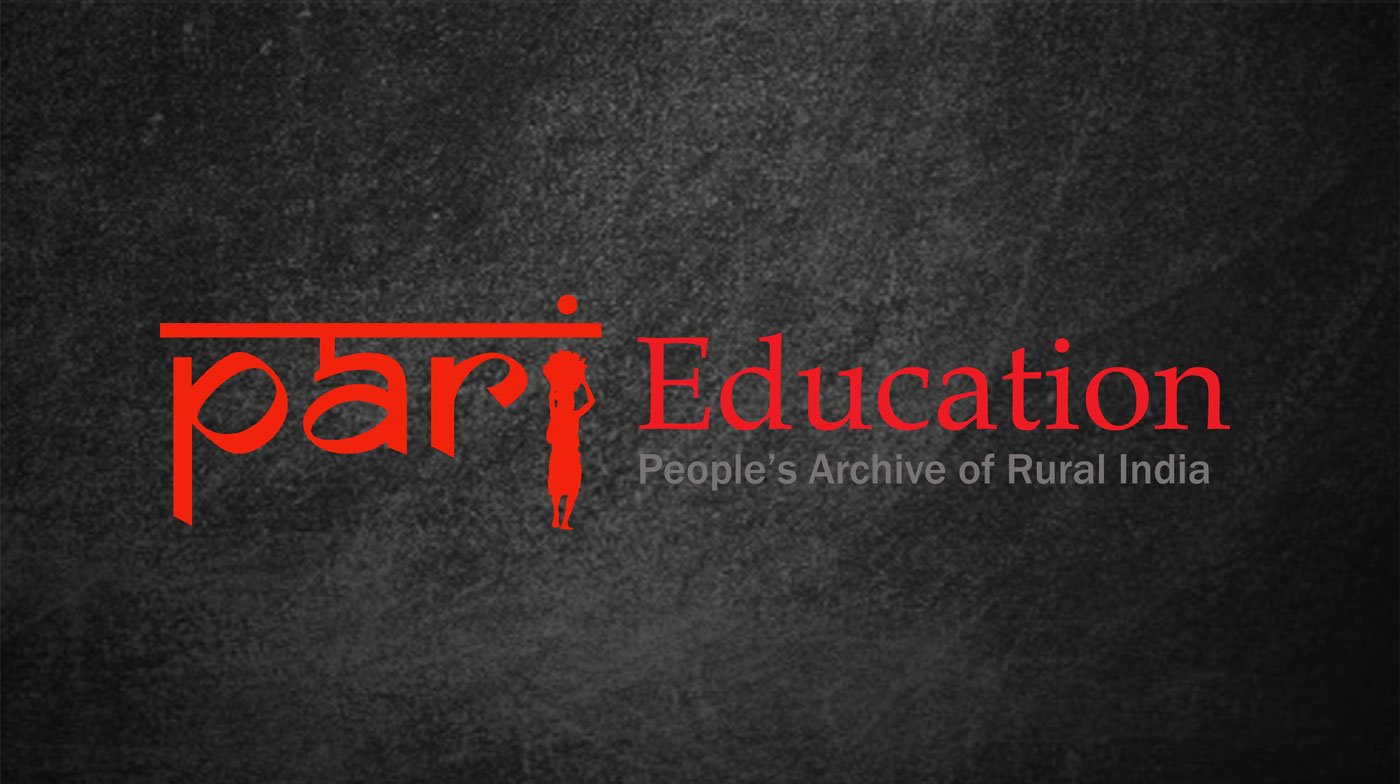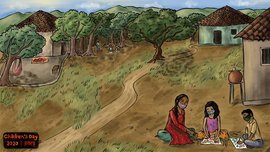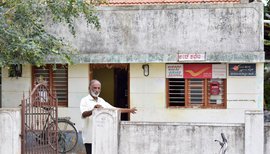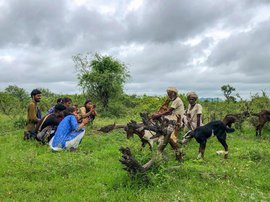The People’s Archive of Rural India contains hundreds of stories and documents, photographs and films, featuring everyday Indians who can teach everyone a thing or two.
Among them is Ratan Biswas of Tripura, who re-engineered a bicycle to carry five bamboo poles weighing roughly 200 kilograms across 17 kilometres to earn a net profit of Rs. 200. He can teach us a bit of physics, innovation and geography. And Karabhai Aal , a pastoralist in Gujarat, as well as Augustin Vadakil , a farmer in Kerala, both impacted by climate change, can teach us something about ecology and economic development. But their stories remain largely outside the curriculum.
For the last two years, PARI Education has been working with schools and colleges across the country to bring such stories into the classroom, because we believe that there is much to learn here. Young Indians are eager to be educated about their country, and to be drawn into discussions about the realities around them. Together with them, we want to uncover the incredible diversity and complexity of the Indian countryside.
To tell compelling and critical stories such as those on PARI about wild buffaloes in Maharashtra driven to raid farms due to climate change, the revolutionary poet who sings about the displacement of Adivasi communities in the Niyamgiri hills of Odisha, and the women of the Changpa community in Ladakh. As one student told us, “I was embarrassed that I didn’t know all this about my country” and “I learnt that rural India is not just about farming.” This encounter, this eventual learning, about the lives and times of rural Indians, is the essence of a ‘PARI education’.
Trying to know more about your country, the nation that is barely ever in our textbooks, is just the beginning. When PARI Education comes to your institution, you understand that there is a world of over 800 million rural Indians you rarely hear or read about in mainstream media. Of their lives, labour, crafts, cultures, languages; of migrants and their journeys in search of work; of women-led struggles to save their land and environment. As one college student tweeted: “It really made me question the news we consume daily. We're so unaware of what's happening amongst the largest demographic groups in India.”
We believe that learning is a journey rooted in experience. So we don't stop at informing, but ask students to report from the ground, to engage with the people whose lives they study, and to build empathy and sensitivity. “My [PARI] project showed me how a man can travel thousands of kilometres just to earn that extra 5,000 rupees. It really touched and inspired me,” said a student, whose Economics project is now a PARI story .
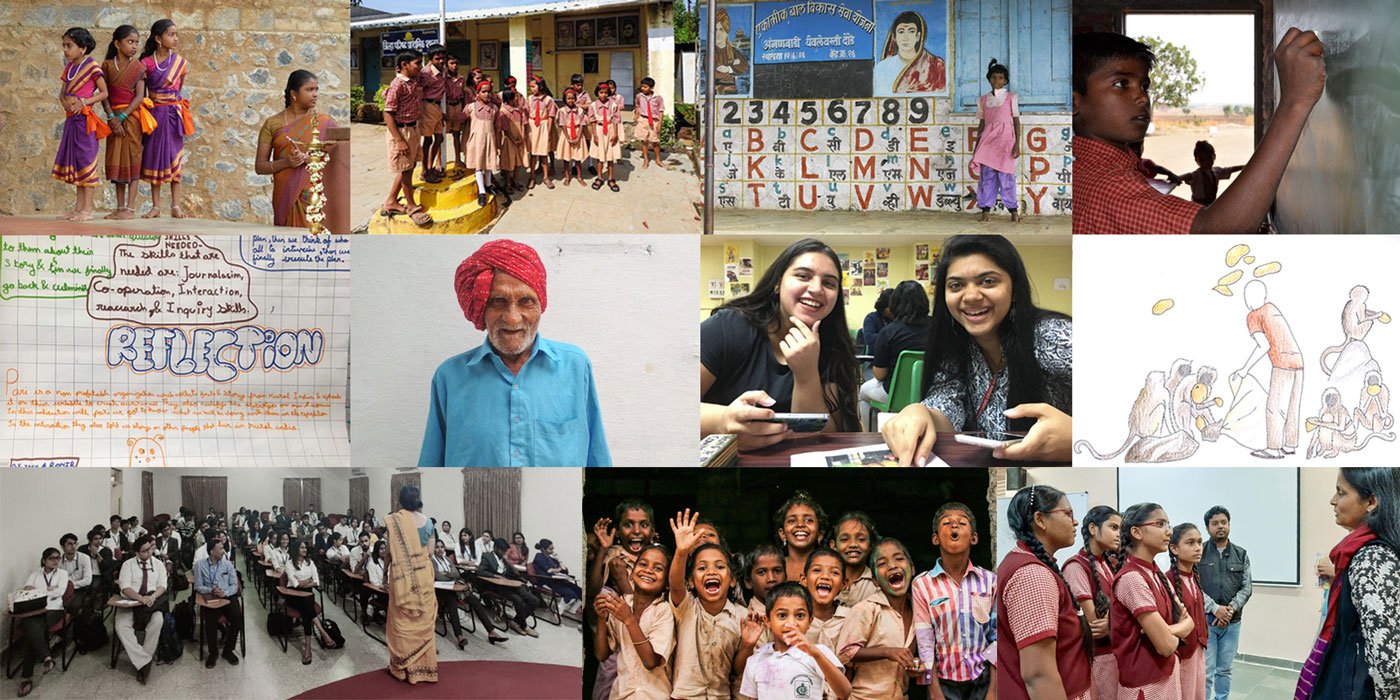
And when a student in rural India sees our stories, it changes the way they view their surroundings, their parents’ occupations and their own lives. Often, they want to join us in documenting their own experiences. As one student in Dhamtari village of Chhattisgarh told us: “We never thought that anyone would be interested in what happens in our villages. We want to write our stories now.”
PARI Education is giving this nation’s students a chance to write their own textbooks and thereby actively participate in their own education. By doing so, they will, in turn, be teaching generations of students who follow them.
We invite original work done by students on rural India, or related to rural India, and publish the best of the lot on PARI Education . You too can join us in learning about, and recording, rural India through the eyes of young people.
We realise that PARI Education is taking very early, rudimentary steps on the great journey ahead. It is our aim, our need, our mandate, to be in every rural school, especially those serving the poorest sections of society. And for students there to learn from PARI, contribute to PARI Education, in their own languages – PARI already publishes in over 10 languages, and we aim to scale this up over time.
We also recognise our task in building a bridge between urban and rural students, between the privileged and the excluded. And in making the more privileged students empathise, understand and act on the inequalities between them and the rest. PARI has been doing stories highlighting those gaps.
We are also working with groups within the free software movement that seek to reach out to disadvantaged students online– and offline as well, those completely excluded from the rush to online education in India’s rapidly growing digital divide. PARI Education is the sum of all these tasks, and of journeys we want to embark on with you.
Priti David
PARI Education Editor
